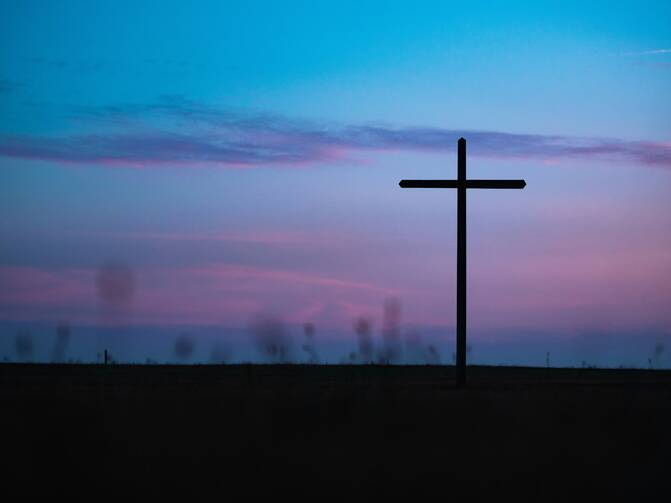A Reflection for Tuesday of the Sixteenth Week in Ordinary Time
Find today’s readings here.
“For whoever does the will of my heavenly Father is my brother, and sister, and mother.”
Today’s Gospel passage from Matthew reminds us of the oneness of humanity—and the consequent oneness of the Church. The words that Jesus speaks to his disciples address the nature of our Catholic faith, in the original sense of the term “Catholic”—a universal, all-embracing church that offers the light and love of Christ to every human being.
I have occasionally come across other Catholics who view faith as a mark of God’s favor selectively given to them, or as a membership card for a divinely elected in-group, over and against the unwashed masses of atheists, non-Catholics or “cafeteria Catholics.” I love devotional practices as much as the next Catholic, and I find practices such as weekly Mass attendance and Eucharistic adoration profoundly enriching for my faith. Yet from the way I heard some more fastidious Catholics talk about people who occasionally missed a Sunday Mass, wore shorts to church or were occasionally lax about the Eucharistic fast, I could have been forgiven for believing them to be as sinless as Christ himself. For them, it seemed as though the Church was a fortress from which to wage spiritual warfare against these “others.”
Yet we must recognize that “cafeteria Catholics,” other Christians, people of different faiths or people of no faith at all often do a far better job of emulating Jesus’ love and compassion, of doing the will of his heavenly Father, than self-proclaimed guardians of “true Catholicism.” Who is closer to following God’s will: the person, Catholic or otherwise, who treats others with compassion and looks out for the most vulnerable in our society? Or the Catholic with commendable piety and devotion who nevertheless falls prey to pride and fails to recognize those outside of the “in-group” as their brothers and sisters?
Pope Francis took up a similar refrain to Jesus’ at last summer’s World Youth Day celebration in Lisbon. The Holy Father led the assembled throng in a chant of “Todos, todos, todos!” and reminded us that the Catholic faith is defined by love for all humanity. More recently, he wrote that “Jesus calls everyone, everyone. Some think of the Church as a customs office and that is bad. The Church must be open to everyone.” There is no room for mean-spiritedness or exclusion in a faithful Catholic life. The Catholic Church is neither a country club nor a clique; it is, as Pope Francis often suggests, a field hospital for a wounded world.
Matthew’s Gospel shows that Jesus wants us to remain aware of the Catholic faith’s universality. If we retreat behind the ramparts of an exclusivist fortress or adopt the rigid, often cruel posture of a customs office or a border patrol, we will bring about our own spiritual ruin—and the ruin of the Church. When we adopt an “us-versus-them” style of Catholicism, we negate the loving, all-embracing Gospel of Jesus, who calls every human person to him. Let us go forth and do the will of Jesus and his heavenly Father, bringing God’s healing to the wounded, his love to the brokenhearted and his peace to the world.








